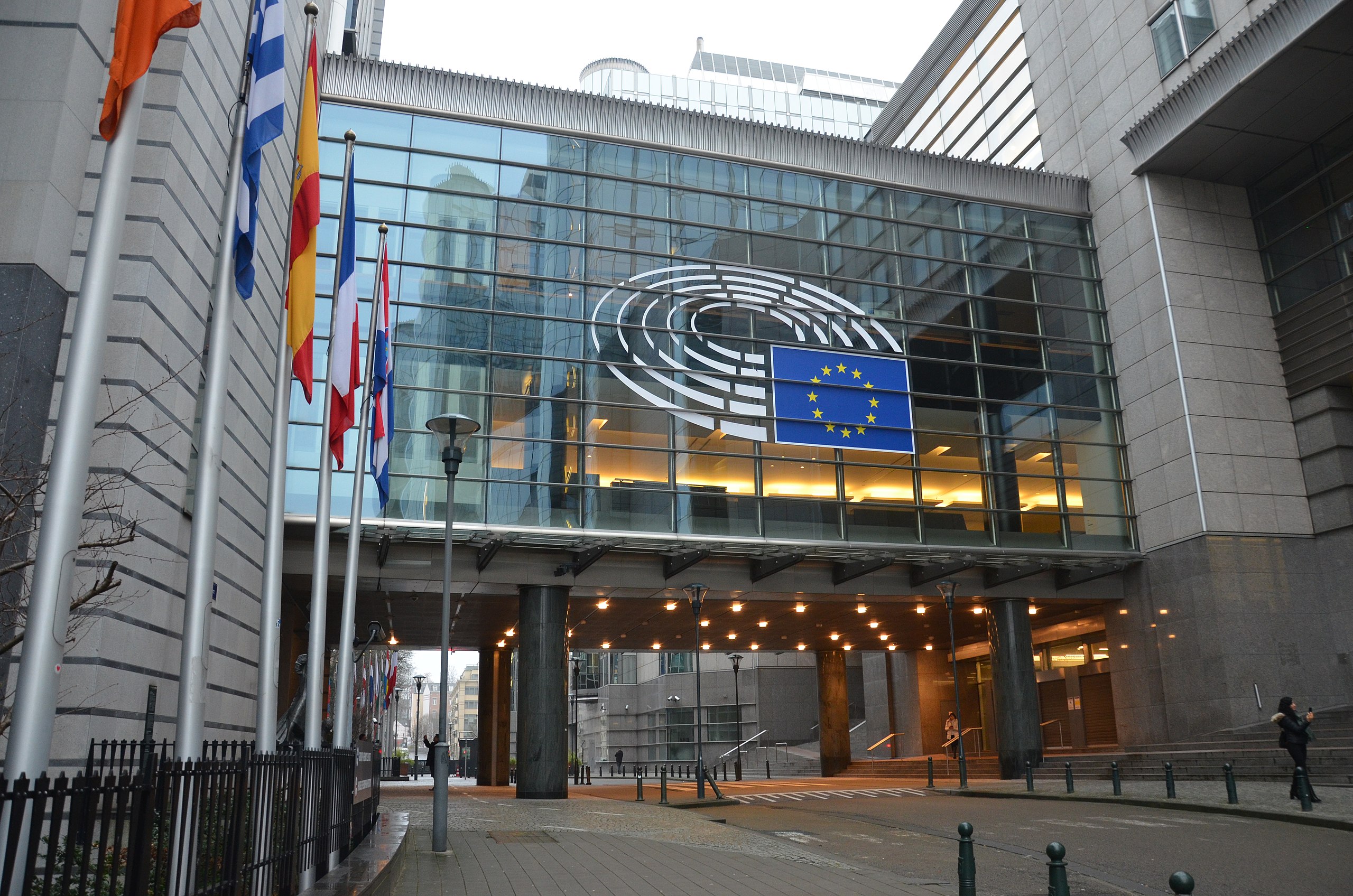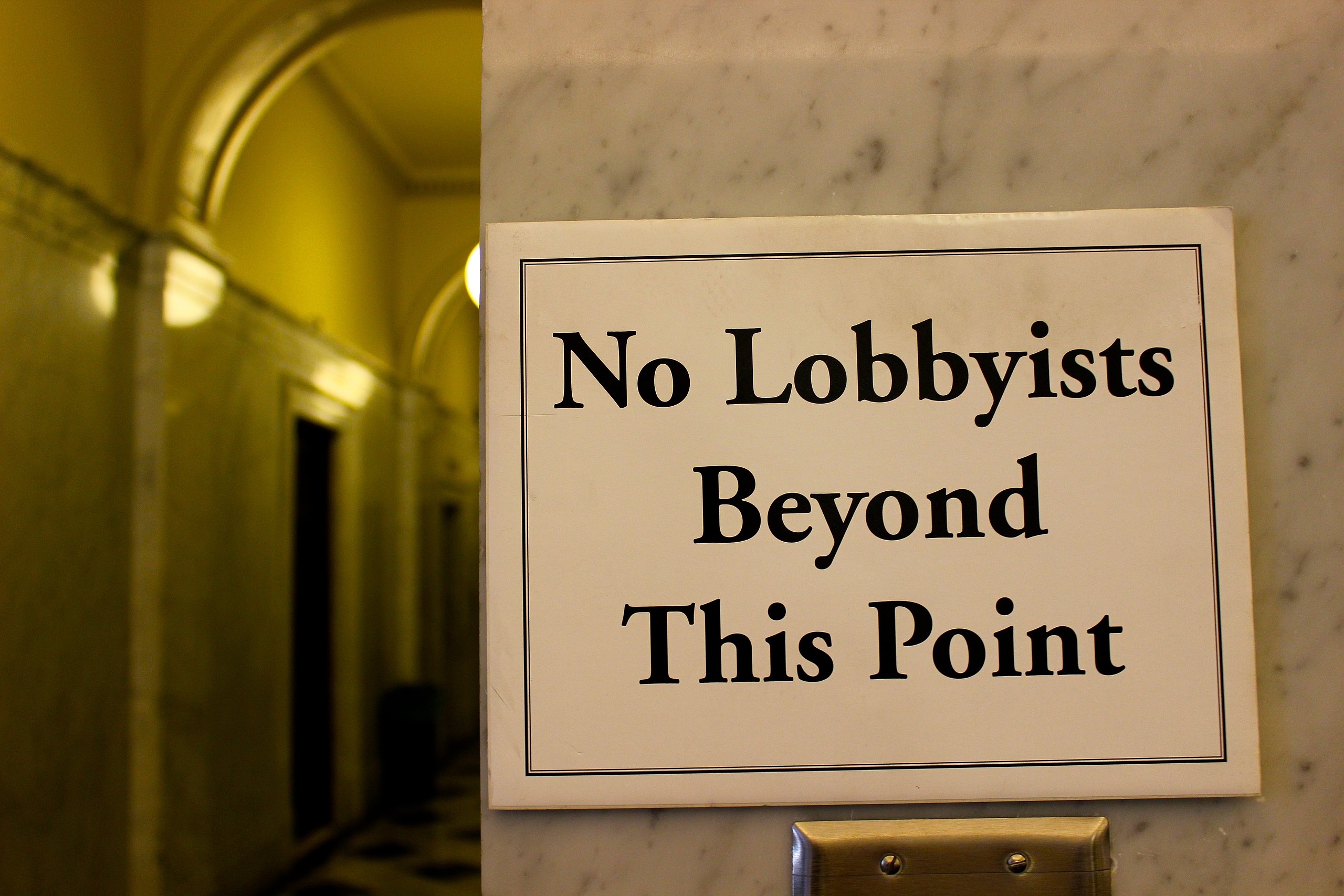
Obstruct, delay, weaken
The lobby by VNO-NCW against legislation on corporate accountability
For a long time, VNO-NCW, the national employers’ federation in the Netherlands, has been a fierce opponent of legislation that obliges companies to address human rights abuses and environmental damage taking place in their value chains. Now that the introduction of such legislation appears inevitable, VNO-NCW, together with its European umbrella organisation BusinessEurope, is trying to the substance of these new rules, as new research from SOMO on the lobbying tactics of both organisations reveals.
For years, civil society organisations and trade unions have been calling for the introduction of legislation on corporate accountability. Such legislation would make companies responsible for preventing and mitigating abuses in their value chains. Voluntary initiatives, such as the Responsible Business Conduct (RBC) Agreements in the Netherlands or philanthropic projects, have failed to prevent structural human rights violations and environmental damage – such as child labour, deforestation, and exploitation – taking place in global value chains. In 2020, responding to several critical , the Dutch government, the European Parliament, and the European Commission finally decided to introduce legislation that addresses corporate accountability.
Bill on Responsible and Sustainable International Business Conduct(opens in new window)
In the Netherlands, the Bill on Responsible and Sustainable International Business Conduct(opens in new window) , submitted by the Christian Union (ChristenUnie), the Greens (GroenLinks), the Labour Party (PvdA) and the Socialist Party (SP), is currently before Parliament. The next Dutch government is expected to take a decision on the introduction of corporate accountability legislation in the Netherlands or at EU level, while the European Commission will publish a proposal for an EU Directive on RBC later this year(opens in new window) . will oblige companies to conduct due diligence in compliance with internationally recognised norms and standards for responsible business conduct, including the OECD Guidelines for Multinational Enterprises. As a result, companies will be required to identify risks of human rights violations and environmental damage in their value chains, and act to prevent and limit such abuses.
 Photo: Dean Drobot
Photo: Dean DrobotThe business community is trying hard to weaken this legislation. Among other issues, contentious elements are whether legislation will apply to all companies and to what extent states will be able to fine and penalise companies that break the law. This counter-lobby from business has already proved successful in Germany and . In 2020, the Swiss corporate accountability bill(opens in new window) was narrowly defeated in a referendum, following a concerted campaign by business organisations, and a much weaker alternative proposal will now be enforced. And, in March 2021, the German(opens in new window) government decided to introduce a substantially watered-down proposal for mandatory due diligence legislation, as a result of a strong from the business community.
This analysis shows how VNO-NCW lobbies in the Netherlands and at EU level, to weaken and block corporate accountability legislation.
Fierce opponent
For years, VNO-NCW was a fierce opponent of the introduction of corporate accountability legislation. While the business association did consider it important to comply with international standards for RBC, it also asserted that binding rules were not the way to enforce such standards. On its , VNO-NCW makes its position clear: ‘An acceleration of sustainable or socially responsible business conduct cannot be achieved through legislation.’According to the lobbying organisation, imposing legislation would see companies stopping all RBC efforts in their value chains, and a better way to combat abuse would be through voluntary multi-stakeholder agreements. At an expert meeting in the Dutch Senate in 2017, for example, VNO-NCW opposed not only the Dutch Child Labour Due Diligence Bill, but : ‘The road of mandatory legislation will undermine the RBC agreements policy [of the Dutch government].’ Earlier in 2017, VNO-NCW told the : ‘Companies will therefore think ‘I won’t invest myself in an RBC agreement if the legislator will propose legislation anyway’. It’s as simple as that.’
Child Labour Due Diligence Act(opens in new window)
In 2019, however, as awareness began to grow that companies would not adhere to voluntary standards, the Dutch parliament and government began moving towards introducing legislation. The Dutch Senate adopted the Child Labour Due Diligence Act(opens in new window) , an initiative by the Dutch Labour Party (PvdA) that forbids companies to sell goods or services that have involved child labour in their production. In the same year, the Dutch Ministry of Foreign Affairs began evaluating the voluntary RBC agreements policy and started a project to investigate options(opens in new window) for broader RBC legislation.
 Photo: cc4.0 Steven Lek
Photo: cc4.0 Steven LekPosition change
When the introduction of legislation appeared to be inevitable, VNO-NCW changed its position. After years of opposing new rules for business, the employers’ organisation suddenly announced it was of a legal obligation to conduct due diligence, although only at EU level. According to , national legislation would put Dutch companies at a disadvantage with their foreign competitors (the so-called ‘level playing field’ argument): ‘A patchwork of different requirements and rules in different [EU] member states is not helpful. This also creates an uneven playing field. Uniform legislation and regulations for all companies in the EU are exactly what increases the effectiveness and impact of policy.’ The business association also made at the Dutch Social and Economic Council (SER), an advisory body for the government that was working on recommendations on the introduction of RBC legislation.
How can this shift in position be explained? Has VNO-NCW suddenly become convinced of the need for binding corporate accountability legislation? Sluggish, lengthy EU legislative processes offer many opportunities to postpone and water down new rules. Advocating European legislation while emphasising the need for a ‘level playing field’, enables VNO-NCW to take a constructive position in public while simultaneously lobbying in Brussels for weaker regulations. This tried and tested strategy has been used previously by the business lobby to tackle measures combating climate change, for example. At the time, BusinessEurope, the European umbrella organisation of employers’ organisations, was for stronger climate policies but, behind closed doors, using delaying tactics and the ‘level playing field’ argument to weaken climate regulations as much as possible. SOMO’s analysis of the lobbying efforts of VNO-NCW and BusinessEurope reveals that, despite their public statements, the employers’ lobby is against ambitious corporate accountability regulations.
BusinessEurope, a European lobby group, is an important partner in VNO-NCW’s EU lobby. VNO-NCW is a member of BusinessEurope’s board and it co-operates ‘intensively’ with the organisation. Although BusinessEurope goes further than VNO-NCW in its opposition of corporate accountability legislation, the two organisations nevertheless work together to achieve ‘a balanced and efficient draft [of European legislation] in line with the of BusinessEurope.’ This cooperation allows VNO-NCW to conveniently ‘free ride’ on BusinessEurope’s strong counter-lobby to delay and weaken progress on this issue, while presenting itself publicly as a constructive supporter of EU legislation.
“Unworkable, vague and draconian”
proposal for EU rules on responsible business conduct(opens in new window)
In April 2020, EU Justice Commissioner Didier Reynders announced(opens in new window) that the European Commission would work on a proposal(opens in new window) for EU rules on responsible business conduct. The President of BusinessEurope, Pierre Gattaz, by stating his opposition to any form of European regulation on corporate accountability. BusinessEurope claims that EU legislation would be detrimental for those working in the value chains of European companies because it would reduce investment from companies. It is another use of the ‘level playing field’ argument; while VNO-NCW argues against national legislation because of the level playing field in Europe, opposes EU regulation because it would disadvantage European companies with those outside the EU. Instead of legislation, BusinessEurope argues, the EU should use multi-stakeholder initiatives to encourage and support companies. The lobby group’s Director General, Markus Beyrer, argued against legislation again in conversation with , and in a letter to the EU Commissioner in October 2020. In Autumn 2020, BusinessEurope stated its case to Commissioner Reynders’ Cabinet. In February 2021, as part of the consultation launched by Commissioner Reynders to gather input for an EU legislative proposal, again opposed binding EU rules and claimed that companies to prevent violations in their value chains.
VNO-NCW also conducts its own lobby in Europe. In February 2021, told the Christian Union, the Greens, Labour Party and Socialist Party that their legislative proposal for Responsible and Sustainable International Business Conduct in the Netherlands was not needed, because work was being done at a European level: ‘We believe that this process is gaining speed. Commissioner Reynders, for example, has announced a proposal for the second quarter of this year. And in the meantime, there are recommendations in the European Parliament from EP rapporteur Lara Wolters. The Wolters report(opens in new window) contains a comprehensive recommendation for the introduction(opens in new window) of an EU Directive obliging companies to prevent and tackle abuses in value chains. BusinessEurope strongly opposed this recommendation and wrote to the European Parliament, asking it to not draw ‘premature conclusions’ and to postpone a vote on the report.
While VNO-NCW, in its with Dutch political parties, emphasises supposedly swift progress at EU level, it hits the brakes in Brussels. , the Wolters report is ‘completely unworkable’, contains ‘unclear definitions’, ‘vague and open standards’ and even ‘draconian sanctions’. This was also the message delivered by the VNO-NCW Brussels lobbyist at a digital conference in March 2021, speaking on behalf of employers’ associations from all over Europe. In early 2021, VNO-NCW’s new President, Ingrid Thijssen, along with her Belgian and Luxembourg colleagues, discussed their ‘concerns’ about legislation with Commissioner Reynders.
VNO-NCW’s eagerness to delay legislation was also evident in its to put ‘on hold’ the Dutch Ministry of Foreign Affair’s project investigating options for legislation, because of the Corona crisis. The Ministry, however, decided to continue working on a new RBC policy.

Weakening new rules
Assuming that regulations will be introduced, BusinessEurope and VNO-NCW intend to use the argument of ‘workability’ to . They , for example, that regulation should only contain obligations of means, rather than obligations of results and that climate change related impacts in value chains should not be considered as environmental damage under the law. Moreover, VNO-NCW that the rules should apply only to companies who employ more than 3,000, or even 5,000, people.
BusinessEurope goes even further and that any legal obligations should apply only to the first tier of a company’s supply chain (known as ‘tier one’). If this were the case, a company would not be responsible for preventing abuse at the deeper levels of its value chain. This is a remarkable argument, as it contradicts the OECD Guidelines that BusinessEurope and VNO-NCW to endorse. expect companies to map the risks of human rights violations and environmental damage in their entire value chain, precisely because these violations usually occur further down the chain. Here too, VNO-NCW’s message in the Netherlands differs from that of BusinessEurope in Brussels. In September 2020, VNO-NCW of the SER advisory report on RBC legislation, which emphasised the importance of the ‘broadest and deepest possible application of [the OECD] Guidelines and companies’ value chain responsibility’.
An effective lobby
beleidsnota Van Voorlichten tot Verplichten(opens in new window)
VNO-NCW and BusinessEurope’s lobbying efforts are effective. VNO-NCW maintains close ties with Sigrid Kaag (D66 – the Dutch social liberal party), the Dutch Minister for Foreign Trade and Development Cooperation, responsible for deciding the government’s in the summer of 2020. In its , Working together for Sustainable Supply Chain Impact, the different member groups of the SER (employers, trade unions, independent experts (crown-appointed members)), collectively recommended that the government introduce RBC, but did stress that it would be ‘a political decision’ on whether such legislation were national or European. In its new RBC policy, published in October 2020, Minister Kaag took the position advocated by VNO-NCW. Although the Dutch government now, for the first time, RBC legislation, it also states that it has a ‘strong preference’ for European regulation on the matter. And while the Ministry of Foreign Affairs continues to work on the ‘building blocks’ of legislation, the Dutch Government has not taken any concrete steps to introduce new national legislation or implement the Child Labour Due Diligence Act, passed in 2019.
VNO-NCW also wields considerable on this issue in the Dutch Parliament. For years, the Dutch liberal party VVD was an outspoken opponent of binding rules for corporate accountability and asked the government to postpone policy evaluations that could potentially lead to more stringent corporate accountability rules. In the course of 2020, however, the party changed its position, in line with that of VNO-NCW. According to VVD MP Weverling ‘RBC rules and regulations are important’, but these should be implemented exclusively at a European level. Legislation in the Netherlands, he says, ‘clearly is only counterproductive’. During a in December 2020, MP Bouali of the social-liberal party D66, repeatedly emphasised the risk of creating a ‘patchwork’ of national regulations in Europe, a term commonly used by (as in a publication issued the day before the debate, for example).
In the European Parliament, MEP Liesje Schreinemacher (Renew Europe/VVD) tabled several amendments to weaken the proposals for an EU Directive on Due Diligence in the Wolters report. These amendments – proposals to limit the responsibility of companies to the first tier of the supply chain and therefore adjust the definitions existing in international RBC standards – clearly reflect of VNO-NCW and BusinessEurope. also wanted to limit the scope of future regulation to large companies only.
 Photo: CC geerati@gmail.com via depositphotos
Photo: CC geerati@gmail.com via depositphotosA two-faced lobby
VNO-NCW’s lobbying strategy is clear; the business group has wanted, for a long time, to prevent legislation, and now this approach has failed, it is pleading for European legislation as a way of policy developments. This move appears to be strategic. By favouring legislation – although only at a European level – the organisation appears constructive, while ensuring that the Dutch government does not move towards national legislation. Meanwhile, VNO-NCW and BusinessEurope take a very different tone in Brussels, preventing or weakening that very same European legislation. While BusinessEurope is clearly opposed to legislation (asking, for example, for parliamentary votes to be postponed), VNO-NCW argues in favour of weakening future regulations, under the guise of ‘workability’. This two-faced lobby demonstrates that little has changed in VNO-NCW’s position. As far as the employers’ organisation is concerned, businesses must be hindered as little as possible, and human rights and the environment are secondary concerns. VNO-NCW’s , Doing Business to Create Broad Welfare(opens in new window) does not seem to mean much when it comes to corporate accountability.
In the coming months, politicians and policymakers in the Netherlands and the EU will face important decisions about the introduction of RBC legislation. The Dutch parliament and the Dutch government will also be considering whether to introduce legislation in the Netherlands. The European Commission has just announced it is delaying(opens in new window) the publication of its proposal for an EU Directive until “after the summer”. It will then be clear how effective the business lobby has been.
About this article
This article was originally published in Dutch. For this article, SOMO analysed public lobbying statements made between 2017 and 2021 by VNO-NCW and BusinessEurope on corporate accountability legislation. In total, this comprised 24 letters, media statements, parliamentary hearings, articles published on the VNO-NCW and BusinessEurope websites and in other publications. SOMO submitted a draft version of this article to VNO-NCW and BusinessEurope to check and correct any factual inaccuracies. VNO-NCW and BusinessEurope responded, after which SOMO made the relevant adjustments. Shortly before publication of this article, VNO-NCW changed its position on RBC legislation, as stated on its website. The organisation’s former position can be found via archive.org (28 February 2021(opens in new window) ).
Do you need more information?
-

Jasper van Teeffelen
Researcher








